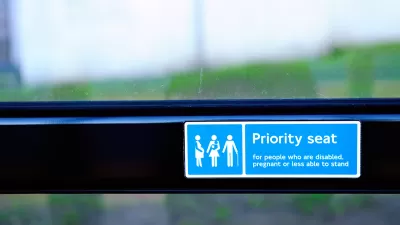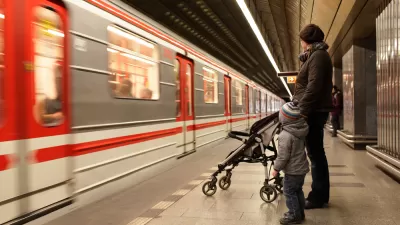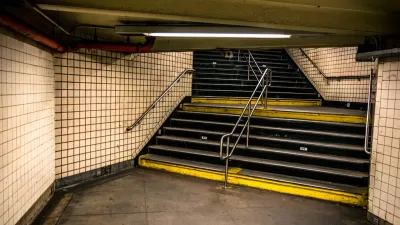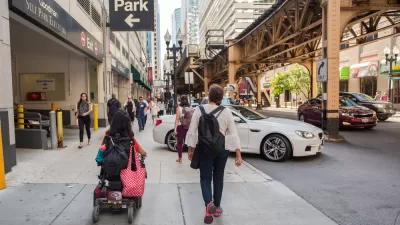The New Urban Agenda, which sets a new global strategy for sustainable urbanization, still has shortcomings regarding universal access for people with special needs.

Citiscope is profiling the 16 constituent groups comprising the General Assembly of Partners (GAP), which is "the main vehicle for civil society to organize and advocate ahead of Habitat III, the U. N. urbanization summit in October in Quito."
The most recent article in the series is written by Gregg Scruggs, who focuses on the push for universal accessibility in urban areas. To understand the challenges of universal accessibility, Scruggs speaks with Victor Pineda, who runs the Disability Inclusive and Accessible Urban Development Network, is a professor of urban planning at the University of California, Berkeley, and chairs the GAP constituent group for disabled persons.
"According to Pineda, roughly 1 billion people have some kind of disability. But not all disabilities are created equal, and the wide range of possible hindrances means there are few one-size-fits-all solutions," writes Scruggs.
Achieving the goals of the constituent group has also proved a challenge. According to Scruggs, the final draft of the New Urban Agenda, as released in September, included the words "persons with disabilities" 12 times. "However, the document does not mention 'universal design' or 'reasonable accommodations', two linchpin concepts in legislation to protect the disabled, nor the convention itself," explains Scruggs.
Scruggs also speaks with Mohammed Loutfy, the executive director of the Arab Forum for the Rights of People with Disabilities and a co-chair of the GAP group. Loufty describes his experiences with poor accessibility as well as the next political and public relations steps for the accessibility agenda to achieve a greater share of the New Urban Agenda.
FULL STORY: ‘I love cities, but they don’t all love me back,’ disabled advocate says ahead of Habitat III

Alabama: Trump Terminates Settlements for Black Communities Harmed By Raw Sewage
Trump deemed the landmark civil rights agreement “illegal DEI and environmental justice policy.”

Study: Maui’s Plan to Convert Vacation Rentals to Long-Term Housing Could Cause Nearly $1 Billion Economic Loss
The plan would reduce visitor accommodation by 25% resulting in 1,900 jobs lost.

Planetizen Federal Action Tracker
A weekly monitor of how Trump’s orders and actions are impacting planners and planning in America.

Wind Energy on the Rise Despite Federal Policy Reversal
The Trump administration is revoking federal support for renewable energy, but demand for new projects continues unabated.

Passengers Flock to Caltrain After Electrification
The new electric trains are running faster and more reliably, leading to strong ridership growth on the Bay Area rail system.

Texas Churches Rally Behind ‘Yes in God’s Back Yard’ Legislation
Religious leaders want the state to reduce zoning regulations to streamline leasing church-owned land to housing developers.
Urban Design for Planners 1: Software Tools
This six-course series explores essential urban design concepts using open source software and equips planners with the tools they need to participate fully in the urban design process.
Planning for Universal Design
Learn the tools for implementing Universal Design in planning regulations.
Caltrans
Smith Gee Studio
Institute for Housing and Urban Development Studies (IHS)
City of Grandview
Harvard GSD Executive Education
Toledo-Lucas County Plan Commissions
Salt Lake City
NYU Wagner Graduate School of Public Service





























